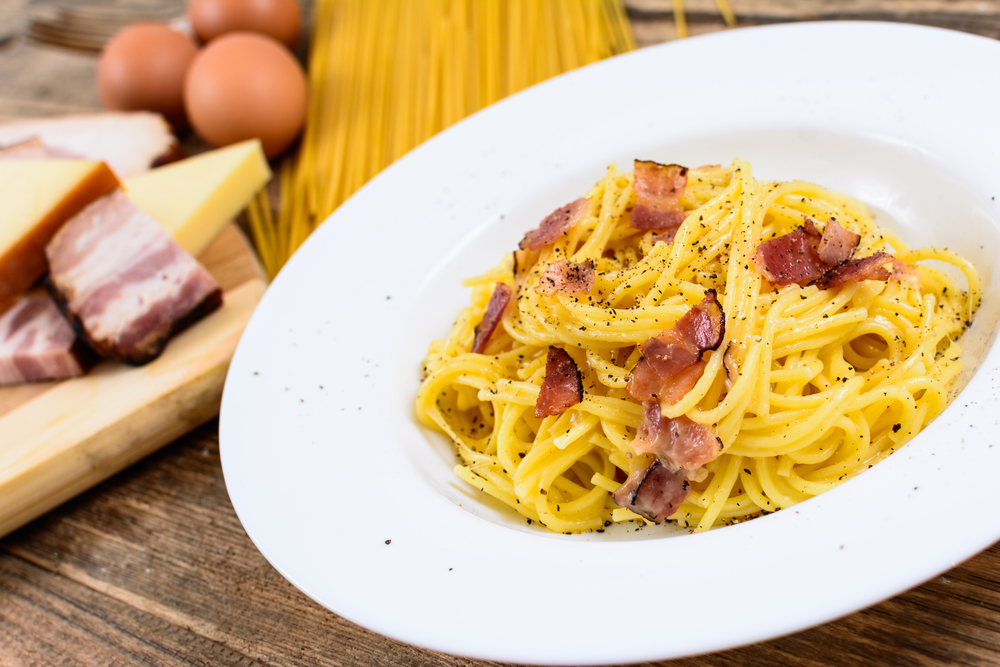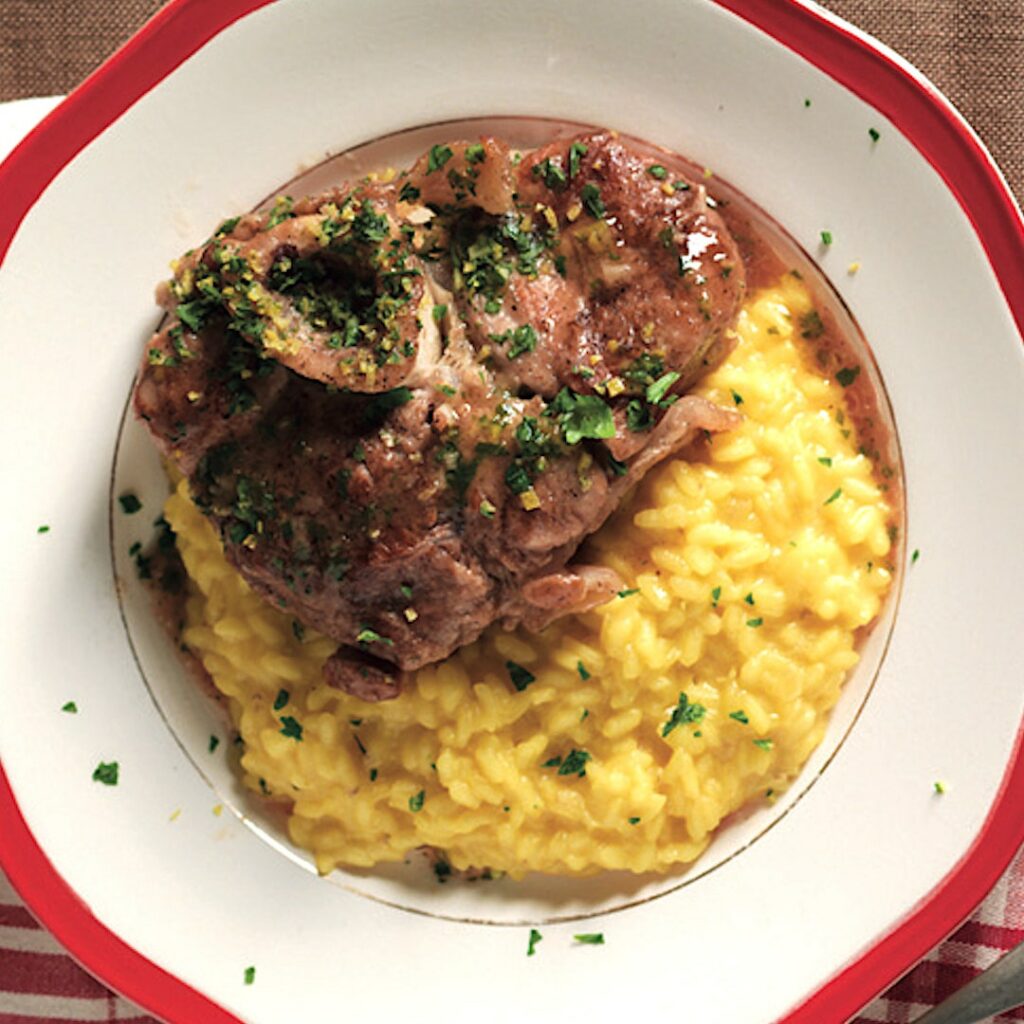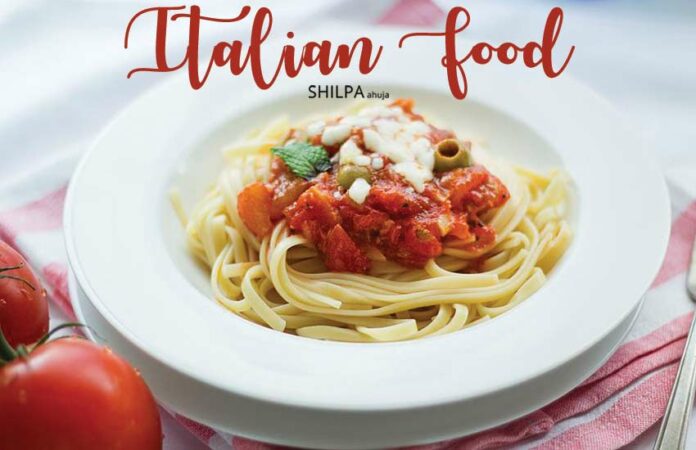Italian cuisine is a symphony of tastes and aromas that tell a beautiful story of Italy’s rich heritage. Renowned worldwide for its simplicity, quality ingredients, and the love that goes into each dish, it embodies the philosophy of ‘less is more’. This guide aims to transport you to the heart of Italy as we explore how to create classic Italian dishes from the comfort of your own kitchen. Whether you’re a beginner or an experienced cook, these easy Italian recipes will help you master the art of Italian cooking and allow you to savor authentic flavors right at home.
Essential Ingredients in Italian Cooking
- Olive Oil: This is a staple in Italian cooking and is used for everything from sautéing and roasting to dressing salads and finishing dishes. It’s the base of most Italian recipes and offers a rich, robust flavor that elevates each dish.
- Garlic and Onions: These two aromatics are the bedrock of flavor in countless Italian dishes. Whether sautéed for a pasta sauce or roasted for a hearty stew, they add depth and richness to the cuisine.
- Tomatoes: Fresh, canned, or sun-dried, tomatoes are crucial for Italian cooking. They form the base for various pasta sauces, are sliced fresh in salads, and roasted in the oven for a concentrated flavor.
- Herbs: Italian dishes would be incomplete without herbs like basil, oregano, rosemary, and parsley. These aromatic plants add freshness and unique tastes to everything from pasta and pizza to meat and fish dishes.
- Cheese: Italy boasts hundreds of cheese varieties. Parmesan and mozzarella are perhaps the most widely used in Italian cuisine, adding creamy, rich, or sharp flavors to different dishes.
- Pasta and Grains: Pasta is the heart of Italian cuisine, but grains like risotto rice and polenta also play significant roles. Understanding the different types of pasta and how they pair with sauces is key to mastering Italian cooking.
Remember, the secret of Italian cuisine lies in its simplicity and the quality of its ingredients. By stocking your kitchen with these essentials, you’re well on your way to creating beautiful, classic Italian dishes at home.
Mastering Basic Italian Cooking Techniques
- Perfecting Pasta: The art of cooking pasta al dente, or “to the tooth,” is a fundamental Italian cooking technique. The pasta should be tender but still firm when bitten. Timing and constant checking are essential to prevent overcooking. And remember to save a cup of pasta water; its starch content can help thicken your sauce and help it adhere to the pasta better.
- Sautéing Garlic and Onions: The soffritto, the Italian version of the mirepoix, usually starts with sautéing onions, garlic, or both in olive oil. This method extracts the flavors, providing a robust base for many dishes. But beware of high heat; you want the onions and garlic soft and translucent, not burnt.
- Building Flavors with Tomatoes: Whether using fresh, canned, or passata, cooking tomatoes correctly is key. Simmering tomatoes slowly helps concentrate their flavors and meld with other ingredients, creating a rich, velvety sauce.
- Using Herbs: Most Italian dishes use herbs. Some, like rosemary and thyme, can be added early in the cooking process, while others, like basil and parsley, are usually added towards the end or as garnish to preserve their delicate flavors.
- Grating Cheese: Cheese is often the final touch on many Italian dishes. Grating it fresh makes a big difference in taste and texture. Hard cheeses like Parmesan should be finely grated, while softer ones like mozzarella can be coarsely grated or sliced.
Master these techniques, and you will have the confidence and skill to venture into the delicious world of Italian cuisine.
1. Breakfast in Italy: Frittata – The Italian Omelette

Italian breakfasts, or “colazione,” tend to be lighter affairs compared to other cuisines. While some might enjoy a simple espresso with a sweet pastry, a savory alternative is the Frittata – an Italian-style omelette that’s easy to customize and a great way to start your day.
Frittata Recipe:
Ingredients:
6 large eggs, 1/4 cup grated Parmesan, salt and pepper to taste, 2 tablespoons olive oil, 1 small onion (diced), 1 bell pepper (diced), 1 cup spinach.
- Beat the eggs in a bowl, add the Parmesan, salt, and pepper, and mix well.
- Heat olive oil in an oven-safe skillet over medium heat. Add the onion and bell pepper, sautéing until they are soft and slightly caramelized. Add the spinach and cook until wilted.
- Pour the egg mixture over the vegetables, stir gently to combine, and cook until the edges start to pull away from the pan.
- Transfer the skillet to a preheated oven (375°F/190°C) and bake for about 10 minutes, or until the frittata is set and golden brown.
Slice it up and serve your Italian frittata with some crusty bread for a wholesome and traditional Italian breakfast.
Related: Healthy Breakfast Recipes You should Try!
2. Lunch Italian-Style: Pasta alla Carbonara – Creamy Roman Delight

A typical Italian lunch, or “pranzo”, often includes a hearty pasta dish, and Pasta alla Carbonara is a beloved classic. Originating from Rome, this dish is creamy and flavorful, despite its surprisingly simple ingredients.
Pasta alla Carbonara Recipe:
Ingredients:
200g spaghetti, 100g guanciale or pancetta, 2 large eggs, 50g pecorino cheese, 50g Parmesan, freshly ground black pepper, and salt.
- Cook spaghetti in a pot of salted boiling water until al dente.
- In a separate pan, fry the guanciale until it starts to crisp. Remove from heat.
- In a bowl, beat the eggs and mix in both cheeses. Season with a little black pepper.
- Once the spaghetti is done, drain it quickly (reserving some pasta water), and add it to the pan with guanciale. Mix well to coat in fat.
- Remove the pan from heat, add a tiny bit of reserved pasta water, then quickly pour in the egg-cheese mixture, stirring rapidly until it forms a creamy sauce. If needed, add more pasta water.
- Serve immediately, garnished with a little more cheese and a sprinkling of black pepper.
By mastering this recipe, you can enjoy a piece of Italian culinary tradition right in your kitchen. Enjoy your Pasta alla Carbonara!
3. Snacking the Italian Way: Bruschetta al Pomodoro – Classic Italian Toast

In Italy, snacks or “merende” often consist of simple, fresh ingredients, and a classic Bruschetta al Pomodoro perfectly embodies this concept. This dish, with its vibrant flavors and satisfying crunch, makes an ideal appetizer or snack.
Bruschetta al Pomodoro Recipe:
Ingredients:
1 loaf of Italian bread, 2 cloves of garlic, 4 ripe tomatoes, a handful of fresh basil, extra-virgin olive oil, salt, and pepper.
- Slice the bread and toast it until golden brown. Rub one side of each slice with a cut garlic clove for added flavor.
- Dice the tomatoes and chop the basil. Combine them in a bowl, season with salt and pepper, and drizzle with olive oil. Stir the mixture.
- Spoon the tomato and basil mixture onto the toasted bread. Drizzle a little more olive oil on top if desired.
- Serve immediately for the best texture and flavor.
Bruschetta al Pomodoro is a delicious way to enjoy a little taste of Italy at any time of the day.
4. Italian Dinner: Ossobuco alla Milanese – Milan’s Famous Veal Shanks

For dinner or “cena”, Italians enjoy hearty, comforting dishes like Ossobuco alla Milanese. This traditional Milanese dish features braised veal shanks cooked with vegetables, white wine, and broth until tender, typically served with a side of risotto or polenta.
Ossobuco alla Milanese Recipe:
Ingredients:
4 veal shanks, 1 onion, 2 carrots, 2 celery stalks, 2 cloves of garlic, 1 cup white wine, 4 cups beef broth, 1 can tomatoes, 1 bunch fresh parsley, 1 lemon zest, flour, olive oil, salt, and pepper.
- Dust the veal shanks lightly in flour. Heat olive oil in a large dutch oven and brown the shanks on all sides. Remove and set aside.
- In the same pot, add chopped onion, carrots, celery, and minced garlic. Sauté until softened.
- Pour in the wine, scraping the bottom of the pot to deglaze. Once reduced by half, return the veal shanks to the pot.
- Add tomatoes and enough beef broth to nearly cover the shanks. Cover and simmer for about 2 hours until the meat is tender.
- Before serving, sprinkle with a mixture of chopped parsley and lemon zest (known as “gremolata”) for a fresh flavor contrast.
The rich, slow-cooked flavors of Ossobuco alla Milanese make it a quintessential Italian comfort food. Enjoy your authentic Italian dinner!
5. Italian Desserts: Tiramisu – The Quintessential Italian Dessert

No Italian meal is complete without a dolce, or dessert. Tiramisu, meaning “pick me up,” is a classic Italian dessert, beloved for its rich, creamy flavors and coffee kick.
Tiramisu Recipe:
Ingredients:
6 egg yolks, 3/4 cup sugar, 2/3 cup milk, 1 1/4 cups heavy cream, 1/2 teaspoon pure vanilla extract, 8 ounces mascarpone cheese, 1 cup strong brewed coffee, 2 tablespoons rum, 24 ladyfingers, 2 tablespoons unsweetened cocoa powder.
- In a medium saucepan, whisk together egg yolks and sugar, then add milk. Cook over medium heat, stirring until it boils. Boil briefly, then remove from heat and cool.
- In a separate bowl, whip cream with vanilla until stiff peaks form. Whisk mascarpone into yolk mixture until smooth.
- In a small bowl, combine coffee and rum. Dip each ladyfinger into the mixture to let it soak briefly.
- Arrange half of the soaked ladyfingers at the bottom of a dish. Spread half of the mascarpone cream over the ladyfingers, then half of the whipped cream. Repeat layers, and sprinkle with cocoa.
- Cover and refrigerate for at least 2 hours before serving to let the flavors meld together.
This heavenly Tiramisu is guaranteed to transport you straight to Italy with each bite.
Conclusion
Embarking on this journey through Italian cuisine has allowed you to explore the depth and simplicity that make it one of the world’s most loved culinary traditions. From mastering basic cooking techniques to creating classic Italian recipes that span from breakfast to dinner, you’ve discovered the essence of Italian cooking. The key is quality ingredients treated with respect, allowing their flavors to shine. We hope this guide inspires you to continue exploring, cooking, and indulging in the authentic taste of Italy right in your kitchen.


